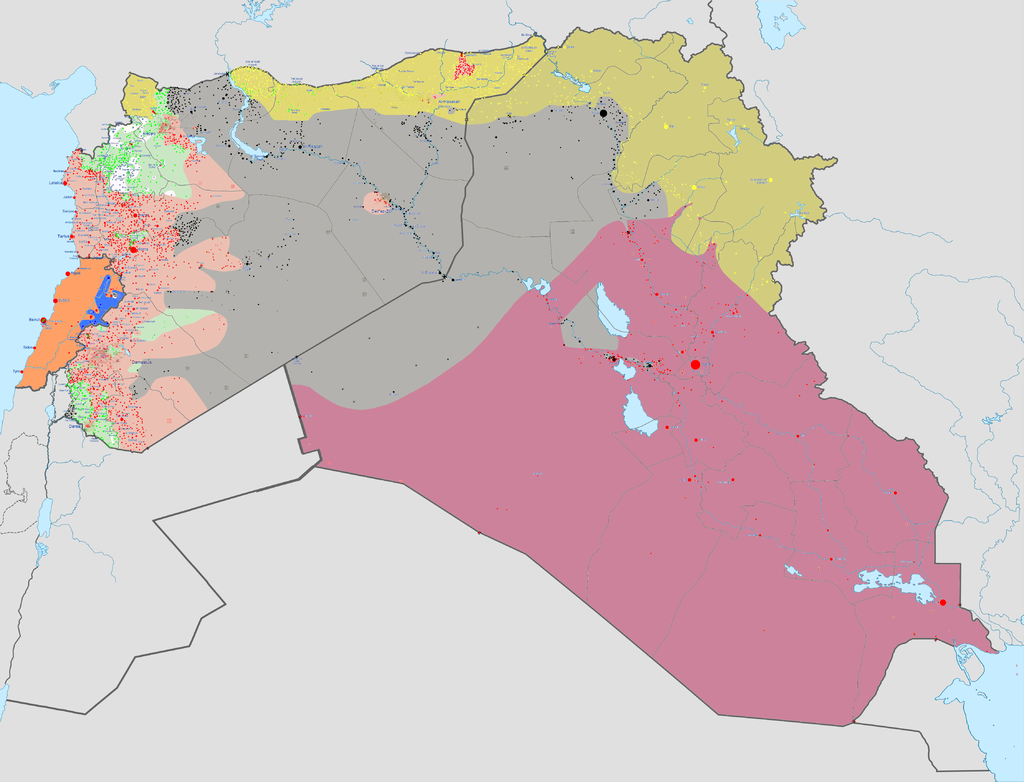by Dunadel Daryoush ’16
The Spencer Lecture series is a speaker program set up to discuss the importance of foreign affairs, international relations, and global outreach. It is named after the only known University School Alumnus to perish in the terrorist attacks of September 11, 2001, George E. “Twig” Spencer III ’69. This year, the school welcomed Michael Scharf, Dean of Case Western Reserve University’s School of Law and former Attorney-Advisor for United Nations Affairs at the U.S. Department of State. Mr. Scharf’s presentation focused on ISIS, its creation and role in the Middle East, and impact on international law.
While Mr. Scharf is undoubtedly an expert in International Law, his presentation overreached in its attempts to provide basic background on ISIS. He began by discussing the group’s origins and motives and then moved on to their current funding and strongholds. However, he misrepresented several key points. Mr. Scharf implied that Shi’a Iran was allied with Sunni ISIS. As many of you may recall from Western Civilization, Islam has been split into two major strands, the Sunni and the Shi’ites, since 632 CE. ISIS and its members subscribe exclusively to fundamentalist interpretations of Sunni Islam. It is imperative to touch upon this fact, as it provides an explanation for ISIS’s actions in confronting Shi’ite Alawaites in Syria and Iraqi Shi’ites. In both nations, Shi’ites represent a minority population.
When Mr. Scharf was prompted about Iran’s role in the current crisis, Mr. Scharf went on a tangent about how the unrelated Iran nuclear inspections agreement poses a threat to the world and how it ensures the creation of a nuclear weapon. While this demonstrates his bias, it also helps to underline how poorly informed Mr. Scharf is about the nature of Iran’s relationship with ISIS. Mr Scharf claimed that Iran is an enormous state sponsor of terrorism and he would not be surprised if the money released from lifted sanctions and the unfreezing of assets went straight to organizations like ISIS. Clearly, our guest was mistaken about the political contingencies of Sunni-Shi’ite conflict.
When asked to clarify his position, Mr. Scharf likened Sunni and Shi’ite relations to “donating to both Republican and Democratic political parties.” Such a statement is absurd. To trivialize over a millennium of religious conflict as if it were political rivalry in American society is crude and naïve. Furthermore, it demonstrates Mr. Scharf’s lack of understanding of the geopolitical situation in the Middle East, as Iran has openly committed itself to ridding the world of ISIS just like the 60-some nations that are formally or informally at war with ISIS. By supplying weapons and troops to Shi’ite militias, Iran has actually aided attempts to push ISIS out of Syria and Iraq. Not only was Mr. Scharf making wild accusations, but he was also ignoring developments in the fight against ISIS dating back to 2013.
This gross misunderstanding of religion, culture, and politics was the undoing of Mr. Scharf’s well-intentioned presentation. From butchering the pronunciation of names to misrepresenting his understanding of the region’s complexities, it is clear that Mr. Scharf may know the law but does need some education on Middle Eastern culture and religion. I urge Mr. Scharf to avoid presenting himself as an expert in areas where his expertise is evidently questionable, and to remain engaged in his important work in the legal field. I also encourage University School students to educate themselves on the ongoing global ramifications of the conflicts in Syria and Iraq from reputable sources.








Classic Volkswagen • May 26, 2016 at 9:45 pm
This is truly an inspriational piece of work. Throughout this article you have demonstrated quality and brilliance. You have inspired me to look into foreign affairs. I have planned a trip to the Middle East to experience the religion, culture, and politics first hand. Many more Americans should be educated on the topic of foreign affairs.Thank you for your service.